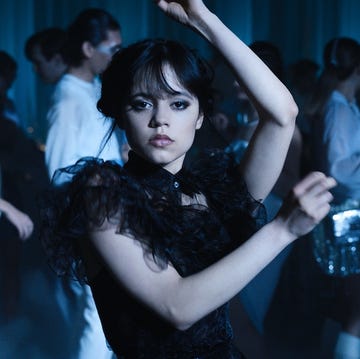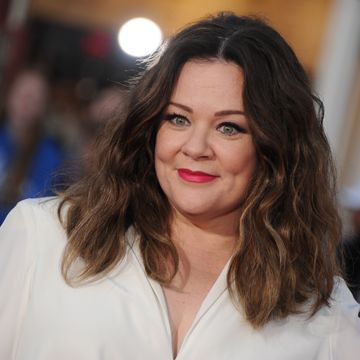The British news media aren't the only ones selling women short. It's a problem in America, too...
Picture the finest possible candidates for elected office. Fix those superlative politicians in your mind. How would you describe them? What words would you use? Are they are "tough" and "ambitious"? Are they "decisive" and "determined" and "unwavering"?
Odds are, we agree: They are—absolutely. These are the prerequisites for good leadership. These are the makings of the best politicians. Now ask yourself this: Are the representatives that those terms suggest men or women?
"The way the press uses language is an issue for women," explains Debbie Walsh, director of the Center for American Women and Politics at Rutgers University. "When the media talks about men and calls them 'strong and assertive,' that shows strength and that's important. But when women are described in those same words, that can be very negative and very detrimental to them."
As Hillary Clinton formalized her entrance into this latest presidential contest earlier this month, Walsh is more conscious of that trend than ever.
A report that the Barbara Lee Foundation released last year concludes that women in politics—even women as powerful as Hillary Clinton—face "a double bind." Both male and female politicians must prove that they are qualified to hold the positions they seek. But women who want to win races need to demonstrate a more elusive feature: They have to be deemed "likeable" as well.
"That factor becomes a challenge in the kind of coverage that women get," Walsh says, remembering how Clinton was represented the media during her last presidential race—her depiction punctuated with jokes about "nutcrackers and pantsuits."
"If women are not portrayed as the kind of people that voters like or if the press uses certain adjectives to describe them, it calls into question whether or not they have the credentials they need to succeed," Walsh continues. "This is the tension that Hillary Clinton has to deal with every day—in 2008 and, again, in 2016. This is the struggle. How do you run as a woman to be the commander in chief of the most powerful country in the world?"
Celinda Lake of Lake Research Partners confirms the dramatic effect that media coverage can have on the public perception of women in politics. As part of the Name It, Change It project, Lake found that an emphasis on the physical appearance of a female candidate in the press diminished the likelihood that she could be elected and that even minor sexism in the media could undermine her chances at the polls.
"What was interesting to me was that mild sexism had just as much—or, in some cases, more—of an impact than rampant sexism," Lake says. "Calling a candidate an 'ice queen' or a 'mean girl' is just as damaging as using really overt sexist language. And there's no question that all this deters women from getting into politics. If someone who is a treasurer and a lieutenant governor of a state can be called an "ice queen," if someone is a sitting U.S. senator can be called "a mean girl," then, gosh, women think, 'Why am I going to try this? I'm not.'"
Lake and Walsh agree that there is significant room for improvement—especially on the eve of such an historic election. The key, the say, is to encourage women to take control of a media narrative that discriminates against them.
"Notice how gender gets used," Walsh counsels. "Notice how gender might change campaigns and campaign messages." To make it easier for voters to be so vigilant, the Center for American Women and Politics recently launched Presidential Gender Watch—a nonpartisan project that aims to "track, analyze, and illuminate gender dynamics" in the election.
"You can't read everything under the sun," Walsh acknowledges. "But you can be on the lookout. You can be critical."
According to Lake, the "really depressing thing" is that both male and female reporters resort to gendered language and biased exposure. Given that, she contends that no combination of sources can promise objective news. But rather than accept the thread of sexism that has woven its way through so much of modern media, Lake urges consumers to see the pervasiveness as an opportunity.
"As women, we all have a role in calling this out," Lake maintains. "But young women, in particular, can make this difference. On social media and on all these platforms, they can call it out and pass it on. They can make this a movement and demand change. They can be the watchdogs here. All they have to do is tweet about it."
"It has been so tough for women in these races," Walsh concedes. "It's too early to say what is going to happen this time. Given where we are right now, I'm in a wait-and-see mode."
Us too.
From the editors of ELLE.com












